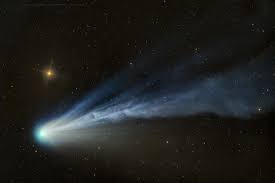Celestial Events: Wonders in the Night Sky
Throughout history, humans have been fascinated by the mysteries of the cosmos and the celestial events that unfold in the night sky. From meteor showers to eclipses, these phenomena capture our imagination and remind us of the vastness and beauty of the universe.
Meteor Showers
Meteor showers occur when Earth passes through the debris left behind by comets or asteroids. As these particles enter our atmosphere, they burn up, creating spectacular streaks of light across the sky. Some of the most well-known meteor showers include the Perseids in August and the Geminids in December.
Lunar Eclipses
A lunar eclipse happens when Earth aligns between the Sun and the Moon, casting a shadow on the lunar surface. During a total lunar eclipse, the Moon can take on a reddish hue due to sunlight filtering through Earth’s atmosphere. This phenomenon has captivated skywatchers for centuries.
Solar Eclipses
Unlike lunar eclipses, solar eclipses occur when the Moon passes between Earth and the Sun, blocking out sunlight for a brief period. Total solar eclipses are rare and awe-inspiring events where day turns into night as the Moon completely covers the Sun’s disk.
Comet Sightings
Comets are icy bodies that originate from the outer reaches of our solar system. When they venture closer to Earth, they can become visible in our night sky, often sporting bright tails that stretch across vast distances. Comet sightings are unpredictable but always enchanting.
Conclusion
Celestial events offer us a chance to marvel at the wonders of our universe and contemplate our place within it. Whether you’re gazing up at a meteor shower or witnessing a solar eclipse, these moments remind us of how interconnected we are with the cosmos around us. So next time you find yourself under a starlit sky, take a moment to appreciate these celestial spectacles that have inspired wonder and curiosity for generations.
4.
- What is the biggest celestial event in history?
- What celestial event happened in April 2024?
- What are cosmological events?
- What is the rarest celestial event?
What is the biggest celestial event in history?
The question “What is the biggest celestial event in history?” often sparks curiosity and debate among astronomers and enthusiasts alike. While defining the single most significant celestial event is subjective, one event that stands out is the formation of the universe itself, known as the Big Bang. This cataclysmic event, believed to have occurred approximately 13.8 billion years ago, marked the beginning of space, time, and all known matter. The Big Bang theory not only explains the origin of our universe but also serves as a cornerstone for understanding cosmic evolution and the vast array of celestial phenomena we observe today.
What celestial event happened in April 2024?
In April 2024, a rare and captivating celestial event is set to occur: a total solar eclipse. During this phenomenon, the Moon will pass between the Earth and the Sun, momentarily blocking out the Sun’s light and creating a breathtaking spectacle in the sky. Total solar eclipses are highly anticipated events for astronomers and skywatchers alike, offering a unique opportunity to witness the beauty and wonder of our solar system in action. This upcoming event in April 2024 promises to be an unforgettable experience for those fortunate enough to witness it.
What are cosmological events?
Cosmological events refer to phenomena that occur on a grand scale in the universe, often involving the study of the origin, evolution, and eventual fate of the cosmos. These events can include the formation of galaxies, the birth and death of stars, the expansion of the universe, and the existence of dark matter and dark energy. Cosmological events are fundamental to our understanding of the universe’s structure and dynamics, providing insights into its vast complexity and interconnectedness. By studying these events, scientists aim to unravel the mysteries of our cosmic origins and gain a deeper appreciation for the awe-inspiring processes that shape the fabric of reality.
What is the rarest celestial event?
One of the most frequently asked questions about celestial events is, “What is the rarest celestial event?” While there are many awe-inspiring phenomena that occur in the night sky, one of the rarest events is a total solar eclipse. During a total solar eclipse, the Moon perfectly aligns with the Sun, casting a shadow on Earth and briefly turning day into night in the path of totality. Total solar eclipses are considered rare because they require precise alignment of the Sun, Moon, and Earth, making each occurrence a unique and unforgettable experience for those lucky enough to witness it.

